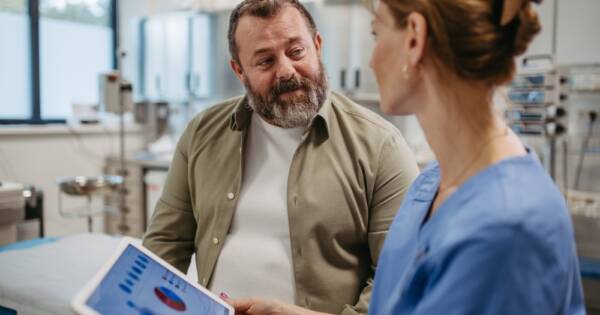Early detection plays a powerful role in the fight against cancer, often making the difference between treatable and advanced stages of the disease. Routine screenings can uncover potential issues before symptoms appear, offering a critical window for intervention. Prioritizing regular checkups and being proactive about health can dramatically improve outcomes and potentially save lives through timely, effective care.
The Importance of Early Detection
Early detection of cancer can save lives. When cancer is found early, it is often more treatable. It makes sense — early-stage cancers typically have not spread, making them easier to remove or control. This early detection can reduce the need for aggressive treatments. Regular screenings are essential, even if you feel healthy, as many cancers do not show noticeable symptoms in their early stages.
Common Screening Methods
Early detection plays a vital role in improving cancer outcomes, and several widely used screening tests help identify cancer or precancerous conditions before symptoms appear. Here are the most common methods recommended by health authorities:
- Mammography (2D/3D): X-ray imaging to detect early breast tissue abnormalities—starts around age 40
- Pap smear and HPV testing: Examines cervical cells to catch precancer and HPV infection—recommended from ages 21–65
- Colonoscopy and stool testing (FIT/gFOBT): Colonoscopy inspects the full colon while stool tests check for hidden blood—colonoscopy every 10 years, stool tests annually
- Oral visual exam and palpation: Quick inspection of mouth and throat tissues—often part of routine dental or physical exams
Early-stage detection through these screenings can prevent progression or significantly improve treatment success rates.
Advanced Screening Techniques
Technology has advanced, leading to new screening methods. Low-dose computed tomography (LDCT), for example, is used for lung cancer detection in high-risk individuals like heavy smokers. This screening method can identify small nodules that might be cancerous.
Prostate-specific antigen (PSA) tests can play a crucial role in detecting prostate cancer early, offering men the chance to address this common cancer before it progresses. And genetic testing is another tool, particularly for those with a family history of cancer. It helps identify inherited mutations that can increase cancer risk, allowing for tailored monitoring and preventive measures.
The Role of Blood Tests
Blood tests are emerging as a valuable screening tool. The PSA test measures prostate-specific antigen levels to screen for prostate cancer. Elevated PSA levels can indicate cancer, but they can also be due to other conditions. A doctor can help you make sense of the results.
Liquid biopsies are another newer development, detecting cancer DNA in the bloodstream. This method holds promise for the early detection of various cancers, providing a non-invasive screening option.
Making Screenings Accessible
Accessibility to screening is vital. Socioeconomic factors often influence access to these essential services. Fortunately, public health initiatives aim to make screenings available to underserved communities. Mobile screening units and community health programs, for example, can play a significant role in making screenings accessible. Ensuring everyone has access to cancer screenings can save countless lives and reduce health disparities.
Staying Informed and Proactive
Awareness and education about cancer screening are crucial. Knowing your family history and discussing it with your doctor can help guide appropriate screening schedules. Staying informed about new screening methods and guidelines can help you make proactive health decisions. Regular screenings, as a result — coupled with a healthy lifestyle — form the foundation of effective cancer prevention.
Cancer Screenings Make Early Detection Possible
Early detection of cancer is a powerful tool in the fight against this formidable disease. By understanding and utilizing various screening methods, we can catch cancer at its earliest, most treatable stages. Staying proactive can make a significant difference in reducing cancer mortality and improving lives. Early detection empowers us to take charge of our health — consult with your doctor about screenings to take control.




